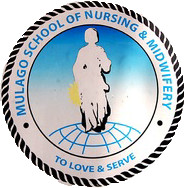This comprehensive curriculum equips nursing students with the knowledge and skills needed to provide high-quality care for older adults, considering their unique physical, psychological, and social needs. Practical clinical experiences and hands-on training are often integral components of geriatric nursing education.
Course Objectives
Upon completion of the course, the student will:
Learning Outcomes
By the end of this unit, students will be able to;
Competences
Students will be able to :
Course Objectives
Upon completion of the course, the student will:
- Describe demographic trends related to aging populations, Evaluate the impact of aging on healthcare systems and Examine historical perspectives on aging and their implications.
- Describe changes in the musculoskeletal, cardiovascular, neurological, and sensory systems and Explain the implications of these changes for nursing care
- Assess mental health in older adults, Address issues of social isolation, loneliness, loss, and grief and Recognize and respond to elder abuse and neglect.
- Understand the characteristics and nursing interventions for dementia, Alzheimer's disease, arthritis, osteoporosis, diabetes, and cardiovascular diseases.
- Identify common medications used by older adults, Manage multiple medications and potential interactions and Recognize and respond to adverse drug reactions in the elderly.
Learning Outcomes
By the end of this unit, students will be able to;
- Analyze and articulate the changing demographics of aging populations, considering factors such as life expectancy, birth rates, and the proportion of older adults in society.
- Assess the effects of an aging population on healthcare infrastructure, resource allocation, and the delivery of healthcare services
- Explore historical attitudes and beliefs about aging, understanding how societal views influence healthcare policies and practices
- Articulate the physiological changes associated with aging in the musculoskeletal, cardiovascular, neurological, and sensory systems
- Understand how the physiological changes affect the overall health and well-being of older adults and apply this knowledge to nursing care, including prevention and intervention strategies
- Proficiently conduct mental health assessments for older adults, recognizing signs of common mental health issues.
- Identify signs of elder abuse and neglect and respond appropriately, including reporting procedures and support mechanisms
- Acquire in-depth knowledge of common health conditions in geriatrics, including their characteristics, risk factors, and evidence-based nursing interventions
Competences
Students will be able to :
- Gather and analyze demographic data related to aging populations, identifying trends and patterns.
- Assess the impact of aging on healthcare systems, considering factors such as demand for services, resource allocation, and healthcare policies.
- Critically analyze historical perspectives on aging, recognizing how societal views have shaped healthcare practices and policies.
- Articulate the physiological changes occurring in the musculoskeletal, cardiovascular, neurological, and sensory systems with accuracy and detail
- Demonstrate an understanding of how these physiological changes impact nursing care, incorporating preventive measures and interventions.
- Conduct mental health assessments for older adults, using appropriate tools and recognizing signs of mental health disorders.
- Develop strategies to address psychosocial challenges such as social isolation, loneliness, and grief, tailoring interventions to individual needs.
- Demonstrate the ability to apply evidence-based nursing interventions for common health conditions in geriatrics

